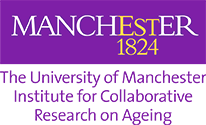Biology of ageing and lifespan
Understanding how organisms age is a key strand of MICRA’s research.
From the complex interactions at cell level to how different organs age, our experts are addressing key questions to help us live in better health for a longer period of our lives.
- Cellular and molecular biology of ageing
- Chronobiology and circadian rhythms
- Systems biology and -omics
- Metabolism, nutrition and active ageing
- Gender, sexual function and reproductive endocrinology
- Immune senescence
Our researchers in this area include:
Professor Dean Jackson
Professor Dean Jackson is a cell biologist and researches how cells change as they age. Dean looks at the structures by which the human genome folds to fit inside the cell’s nucleus, and how this impacts on the workings of the cell’s nucleus as cells age. Work in his laboratory focuses on mutations in DNA sequences and changes in gene expression through ageing, and how they related to decline in how cells can cope with stress. This includes studying DNA damage and checkpoint pathways focussed on ATR and p53, inflammatory pathways focussed on NF-kappaB, metabolic stress pathways, and notably the flow of information through these stress response networks which is frequently altered during diseases.
Professor Susan Howlett
Susan Howlett is professor of cardiovascular physiology and divides her time between Manchester and Dalhousie University in Canada. Her research specialises in how heart cells contract: specifically how the electrical signal that initiates the heart beat is translated into the mechanical contraction of heart cells. Most recently, Susan has discovered how to measure frailty in animal models. This work can open up new insights in ageing. For example, her laboratory has shown that changes in the structure and function of heart cells, which change with age, are more closely related to an animal’s level of frailty than to chronological age. Work like this can also be developed to improve animal health.
Dr David Lee
Dr David Lee is an epidemiologist and Age UK Research Fellow. His researches examines ageing and sex. Evidence shows that sexual relationships have a positive impact on quality-of-life. Benefits include better overall health and longer life. Using data from the English Longitudinal Study of Ageing, David’s work looks at sexual function and satisfaction in eight thousand older adults (50 to 95 years) and the relationships with health and wellbeing. As our population ages it’s important to help predict future health service needs around sexual health. David’s work is supported by James Nazroo, Neil Pendleton and Fred Wu who ran the European Male Ageing Study. David’s study is linked to the National Survey of Sexual Attitudes and Lifestyle (NATSAL) and the US National Social Life, Health and Aging Project (NSHAP).
